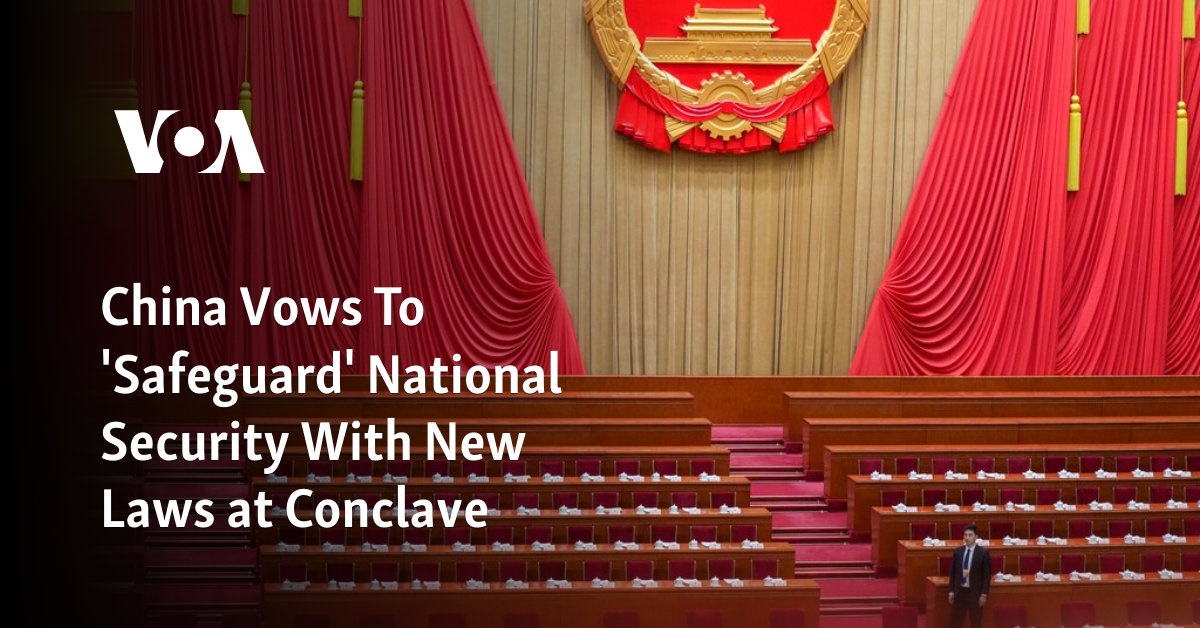
China will pass sweeping security laws in 2024 to “resolutely safeguard” its sovereignty, a top lawmaker vowed in a key legislative session on Friday, as President Xi Jinping’s government seeks to eliminate threats to its rule.
The “Two Sessions” – parallel meetings of China’s rubber-stamp parliament and political consultative body – offer a rare glimpse into the Communist Party-led government’s strategy for the year ahead.
Zhao Leji, chairman of the National People’s Congress Standing Committee, pledged on Friday when formulating the agenda for next year’s National People’s Congress that the National People’s Congress Standing Committee will “resolutely safeguard national sovereignty, security, and development interests.”
“In order to modernize China’s national security system and capabilities,” Beijing will enact “an emergency management law, an energy law, an atomic energy law and a hazardous chemicals safety law,” he said.
Zhao said in the report that the National Defense Education Law and the Cybersecurity Law will also be revised.
He did not provide further details on what the new law would involve or when exactly it would be passed.
The NPC will also formulate and revise laws in areas such as financial stability, pre-school education and disease control.
“Military education and cyber security are clear priorities for Chinese lawmakers,” Jean-Pierre Cabestan, a professor at the University of Hong Kong and an expert on Chinese politics, told AFP.
“They want to strengthen the legal framework in these areas, which is part of Xi Jinping’s own priorities,” he said, adding that the emphasis on national security in Zhao’s report was “not surprising.”
Broad security push
China approved a revised counterespionage law last year that significantly expanded the definition of espionage and gave Beijing greater power than before to punish behavior it deems a threat to national security.
The state secrets law passed last month adds more categories of sensitive information, including “work secrets” – information that is not state secrets but may “impede the normal performance of duties by (state) agencies and work units” if leaked.
The revised law stipulates that “necessary protective measures” must be taken against such leaks.
“Attaching great importance to national security legislation is a major feature of the National People’s Congress’ legislative work in the Xi Jinping era.” NPC Observer the website told AFP.
He pointed out that since 2014, Beijing has introduced more than a dozen pieces of national security legislation, including anti-terrorism laws, national intelligence laws and data security laws.
“Everyone is working hard to build the necessary legal infrastructure to safeguard China’s ‘national security,'” Wei said.
Under Xi, he said, “national security is a priority area for legislation and is likely to remain so for the foreseeable future.”
Follow us on Google news ,Twitter , and Join Whatsapp Group of thelocalreport.in













